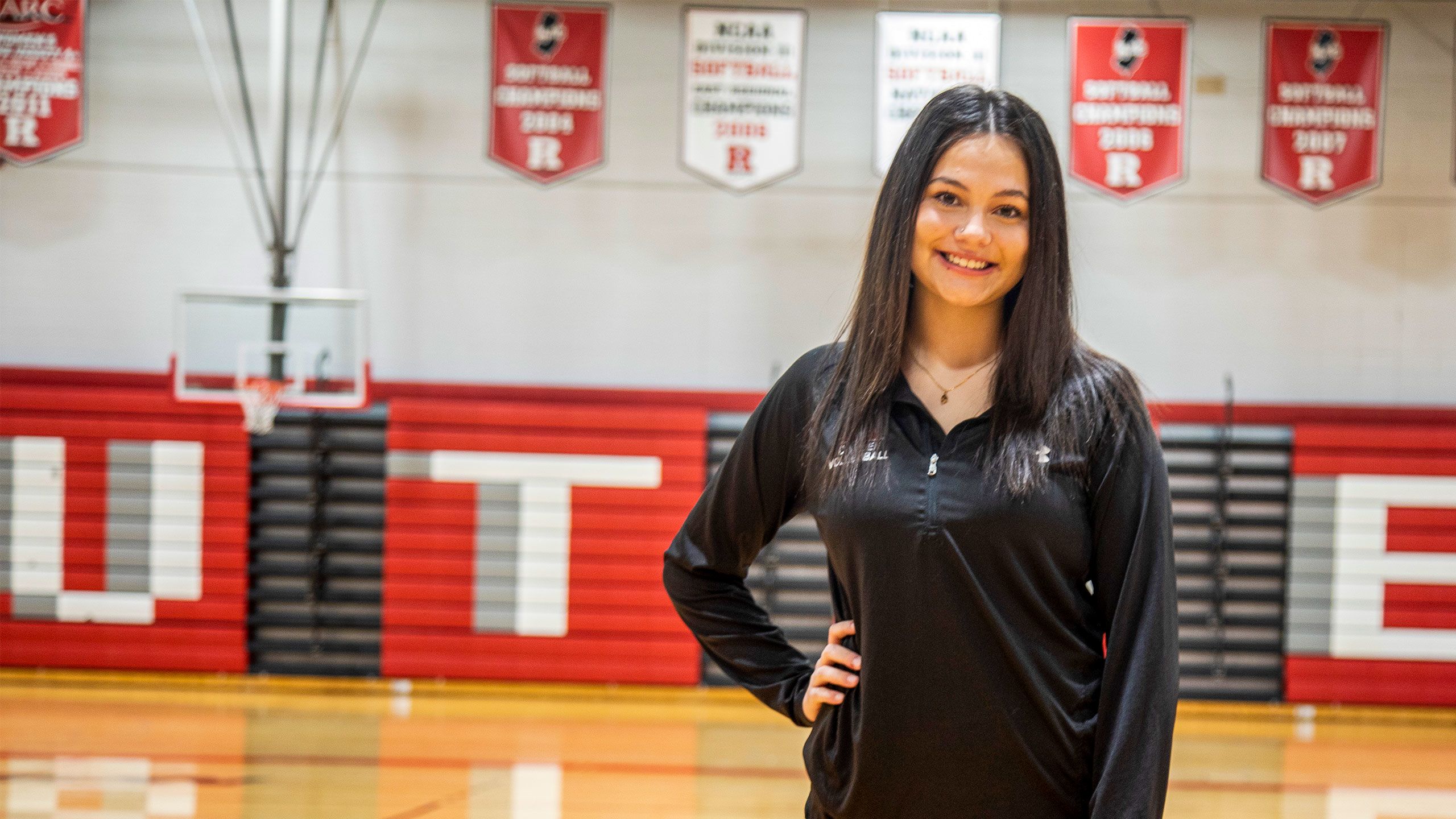Above the Net
Choctaw roots are a source of strength, fortitude, and pride for Rutgers–Camden student-athlete


Nearly a century ago, a Choctaw medicine man and the great-great grandfather of Rutgers University–Camden student Ciera McCrae was among thousands of Native Americans displaced from their homelands in the southeastern United States and forced to travel hundreds of miles to a newly designated “Indian Territory” in present-day Oklahoma. More than 1,300 miles from her native Oklahoma City, McCrae, a first-year psychology major and outside hitter for the Scarlet Raptors women’s volleyball team, never strays from her Choctaw roots. Reflecting on National Native American Heritage Month, she thinks of strength, fortitude, and pride. Her heritage is a driving force behind all her personal quests.

Image courtesy Ciera McCrae: McCrae dressed in native attire for her high school graduation
Image courtesy Ciera McCrae: McCrae dressed in native attire for her high school graduation
“The hard work of my ancestors is why I am able to attend college today,” McCrae said. “I am grateful for this opportunity that I was given.”
McCrae is now pursuing a Rutgers–Camden psychology degree and ultimately plans to practice law on the front lines of social justice. A law degree, she said, will give her the tools to advocate for Choctaw rights and ensure that past wrongs are a thing of the past. “The darkness of the Trail of Tears drives me to pursue my law degree,” she said.
At Rutgers–Camden, McCrae has found a launching pad to reach high above the net. She credits a supportive network of teammates, coaches, and athletic staff for helping her to make a smooth transition on campus. She now looks forward to gaining experience on social-improvement initiatives that will serve her future goals. “Rutgers–Camden is full of these opportunities,” she said.
Growing up, McCrae was always cognizant of her indigenous heritage. She never tired of hearing ancestors share stories passed down from generation to generation. She was also proud to celebrate her heritage wherever possible, which included marching in local parades wearing her traditional Choctaw regalia. Among her fondest memories was participating with her family at the Choctaw Nation’s celebration at the Smithsonian’s National Museum of the American Indian in 2021.
“We celebrated with three days of stickball, storytelling, and rabbit stew,” said McCrae, who was recognized for academic excellence by the Oklahoma Council for Indian Education Honor Society all four years of high school.
McCrae hopes more people learn about indigenous people’s history and heritage. That includes the suffrage and true history of the Native American genocide that happened in the United States.
“This month is all about representation of Native Americans. November is the time to pay respects to Natives for their contributions to this country. The Native American culture is a dying culture and it's important to preserve it.”
Even long after the Trail of Tears, Native Americans continued to be stereotyped and mistreated over the next century. McCrae is thankful that there are no longer government-funded Indian conversion boarding schools, which would cut children’s hair and shape them into “the American child.” “In 1925, these schools were in 29 states and manipulated 60,000 Native American children,” she said.
In spite of such improvements, many challenges persist for many Native American students today. According to the Postsecondary Policy Institute, 24% of 18–24-year-old Native American students are enrolled in college compared to 41% of the overall U.S. population. McCrae posits that these numbers are due in part to an ongoing struggle with poverty and generational debt. On the positive side, she noted, tribes such as the Choctaw Nation are investing in scholarships and technology for student success. However, there is also a lack of guidance and mentors for Native children, and more needs to be done on this front. “I think guidance earlier on the educational path is critical to increase enrollment and graduation rates,” she said.

Choctaw medicine man Billy Washington, Ciera McCrae's great-great grandfather. Image courtesy Ciera McCrae
Choctaw medicine man Billy Washington, Ciera McCrae's great-great grandfather. Image courtesy Ciera McCrae
Looking at a black-and-white photo of her great-great grandfather, McCrae can’t help but be inspired. “His life was dedicated to helping heal people within the tribe,” McCrae said. “I hope that, with some determination and hard work, I will one day help heal others as well.”

Creative Design: Karaamat Abdullah
Photographer: Ron Downes, Jr.